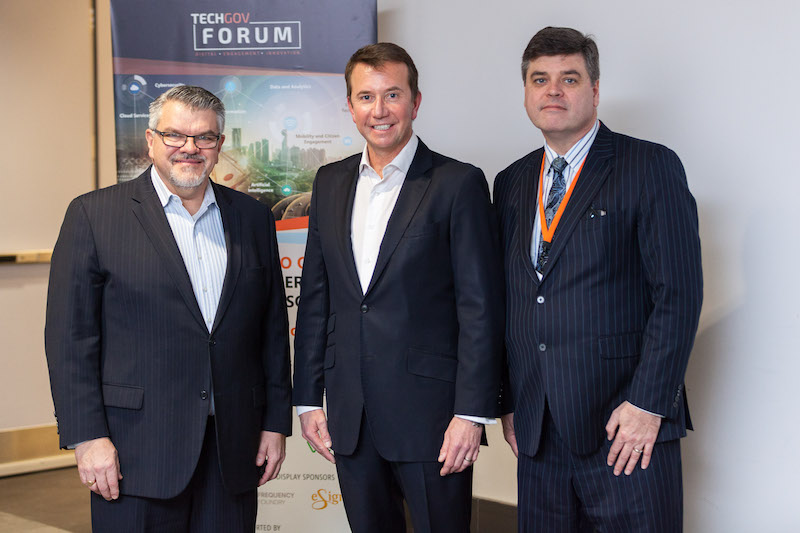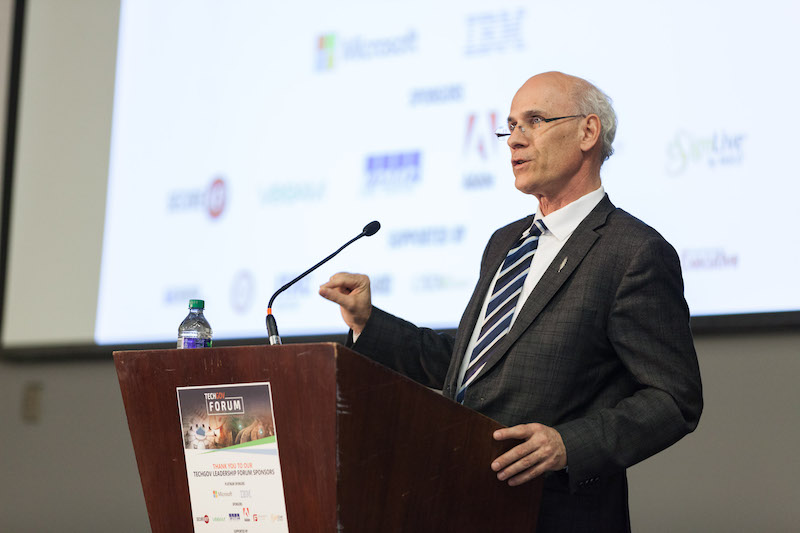Transforming the way services are provided by governments to match the extent people are interacting with technology is a top priority for any government. Citizens have come to expect and demand that their governments change with the rapid advancement of technology to equal the digital methods they are accustomed to in their everyday lives.
This evolution is not new, but one that has been widely discussed and is in different stages of implementation around the world. In Canada, it is no different. Events, forums, conferences, meetings, workshops, and other mechanisms are being used to further this transformation. And this was the case at the recently held TECHGOV forum.
With its mandate to promote public sector excellence, Canadian Government Executive (CGE) has been instrumental over the years in providing the stage to discuss a wide range of issues, policies, services and strategies that can aid in public sector administration. In its first TECHGOV forum, building on its successful CGE Leadership Summit, CGE hosted a two-day conference on technology and government.
“This event was about supporting service delivery, people and innovation,” said J. Richard Jones, Publisher of CGE. “The focus was on how to strategically and seamlessly link the worlds of open government, policy, and citizen-centred services while leveraging proven technologies.”
The forum featured over 20 experts from both government and industry sharing talks on Digital Transformation, Open Government and Citizen Engagement, Innovation for Results, Service Delivery and Technology and Change Management. These pillars were discussed at great lengths, in various formats, including six keynotes, numerous interactive presentations, case studies and plenary sessions.
The highlight of the event included addresses by the Honourable Scott Brison, President of the Treasury Board and Michael Wernick, Clerk of the Privy Council and Secretary of the Cabinet. Both leaders from government pointed out the need to innovate and transform faster to serve the needs of Canadians.

Minister Brison talked about rethinking the transaction by focusing on the customer needs. He went on to add that governments need to focus on outcomes for users and less on processes and outputs. He elaborated on the needs and expectations of Canadians, like how we expect the same service when it comes to renewing our passports like when we conduct a transaction on Amazon.
“Every time a citizen interacts with our government, digitally, ought to be an opportunity to learn from them how we can serve them better,” the minister said. “That’s the basis of user-centric design.”
He concluded by saying that government need to put Canadians at the heart of service design and delivery. “They deserve nothing less because a digital government has little to do with technology and everything to do with the people using it,” he said.
Michael Wernick pointed out that during his long career he has seen various changes within digital government, from the advent of the first word processors, cell phones, fax machines, internet terminals and then on to the arrival of cyber attacks and twitter. These changes have increased the delivery of service and engagement with citizens.
“Technological change is not new, but the challenge is to figure out what is different about this particular wave of technological change,” Wernick said. By taking the lessons from the previous adoptions help greatly “so that we don’t have to start from zero all the time.”
He talked about the need for interoperability and mobility and of coming together more “as a single enterprise.” The apparent reason is service. “Canadians do not care which department or agency or sub-unit that they get service from, they just want the service,” he said. He explained that Canadians want a service that is seamless, available 24/7, on their portable devices, in both official languages, and in formats that are state-of-the-art for persons with disabilities.

The other reason for working together is cybersecurity. “Canadians, rightly, will not tolerate breaches of sensitive government information or the information that government holds about them like their tax records, census filings, or corporate business information,” said the Secretary of the Cabinet.
He went on to add that for innovation and technology to be adopted by government; it must work in two official languages, be fully accessible and be secure.
Attendees at the January 29-30 event heard keynote messages from Marc Brouillard, Treasury Board of Canada Secretariat; Jason Hermitage, Microsoft Canada; Dr. Julia Glidden, IBM; and Alex Miller, Esri Canada.
Transforming cities, AI, cyber threats, community building policy, digital patient, trusted cloud, blockchain, the future of citizen services, the modern CG workplace, digital identity, digital investments were some of the topics discussed over the two days.
To see a slideshow of the event, go here.
Stay tuned for the next TECHGOV event that will be coming in early 2019.
